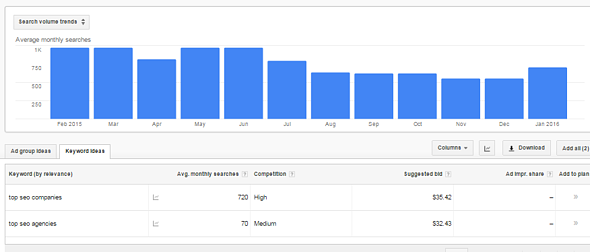What is keyword research in digital marketing
When you’re looking to rank high in search engine results for certain keywords, it’s important to do keyword research. That means understanding the competition and identifying the right keywords to target. In this article, we’re going to explore what keyword research is, and how you can go about doing it.
What is keyword research?
When it comes to online marketing, keyword research is key. Keyword research is the process of discovering the best keywords for your website or blog content. This can be a challenging task, but with a little effort, you can find the right keywords that will help your site traffic grow.
There are a few different ways to approach keyword research. You can use a tool like Google AdWords Keyword Planner or KWFinder Pro to find relevant keywords for your site. You can also use search engine optimization (SEO) techniques to rank your site for specific keywords. Regardless of how you go about it, make sure you pick the right keywords and target them appropriately. Too many irrelevant clicks will only lead to frustration and stagnation on your website.
How to do keyword research
There are a few different ways to do keyword research in digital marketing. The most common way is to use Google AdWords Keyword Planner.
You can also use a paid tool like SEMrush or Moz. Another way to do keyword research is to look at your competitor’s websites and see which keywords they are targeting. You can also use Google Trends to see how popular certain keywords are.

The different types of keywords
There are a few different types of keywords when it comes to digital marketing.
- Keyword research is the process of identifying which keywords are most likely to bring in website traffic.
- Keyword targeting is the process of choosing specific keywords that are relevant to your business and target market.
- paid search marketing is the use of online advertising to drive traffic to a website or web page through the use of targeted keywords.
How to find profitable keywords
When it comes to digital marketing, one of the most important tasks is identifying the right keywords for your website and campaigns. The right keywords can help you reach a larger audience and generate more traffic. However, identifying the best keywords is not easy. In this article, we’ll show you how to find profitable keywords for your business.
The first step in keyword research is finding a good keyword tool. There are many options available, but we recommend using Google Keyword Planner (GKP). GKP is free to use and allows you to see how different keywords perform in search results and on various devices.

Once you have identified your target keywords, it’s time to analyze the competition. This can be done by looking at SERPS (search engine results pages), which give you an overview of how your target keywords are performing in relation to each other and against similar terms. You can also use competitor analysis tools such as SEMrush or Moz.
Once you have a list of potential keywords, it’s time to determine which ones are the best fit for your business. This can be done using several different metrics, including traffic potential, competition level and organic search volume. Once you
Guidelines for selecting the right keywords
When it comes to digital marketing, keyword research is key. Without knowing which keywords to target, your efforts may be wasted. However, selecting the right keywords can be difficult. In this article, we provide guidelines for selecting the right keywords for your online marketing campaigns.
Start with your business goals.
What do you want to achieve with your online presence? If you’re looking to increase traffic to your website, then targeting high-traffic search terms is likely a good idea. However, if you’re only interested in ranking higher on Google, then focus on different keywords.
Consider your audience.
Who is most likely to visit your website? Are they prospective customers? Current customers? Employees? If you can narrow down your target audience, it will make keyword selection much easier. For example, if you run a restaurant, targeting words related to food might be a good idea. If you sell T-Shirts, targeting words related to fashion might work better.
Research the competition.
What are the top keywords being targeted by your competitors? What are their websites like? Do their websites have any relevant content (e.g. blog posts, infographics, etc.)? If so, you may want to include some of these keywords in your marketing efforts.
Research popular search terms.
What are the most-searched phrases on Google? Bing? Yahoo? These search engines track a lot of user data, so they can provide you with valuable insights into what people are looking for.
Analyze your website’s traffic statistics.
Are there any keywords that are driving a high volume of traffic to your website? If so, consider including these keywords in your marketing campaigns.
Test different keywords and see which ones work best for your business.
Try targeting different keywords on different pages of your website (e.g. home page, product page, testimonial page). Also, try running search engine ads with different keywords (and variations of those keywords) to see which ones produce the best results.
Use long-tail keyword research techniques to find even more relevant keywords.
Long-tail keyword research involves analyzing large numbers of search terms (i.e. 500 or more). By doing this, you can find keywords that are not being targeted by competitors but still have potential for generating traffic and leads.
Use keyword research tools.
There are a number of different keyword research tools available online. Some of the more popular ones include Google Adwords Keyword Planner, Google Trends, and SEMrush.
Take advantage of Google Adwords’s Keyword Tool.
This tool can help you find profitable keywords that are currently being searched on Google. You can also use this tool to figure out which keywords are driving the most traffic to your website.
Use other online marketing channels to promote your keywords.
Social media, email campaigns, and paid search ads are all good ways to spread the word about your keywords and drive traffic to your website.
Tips for bidding on keywords
When it comes to digital marketing, keyword research is key. Not only do you need to find the right keywords to target, but you need to bid on them intelligently too. Here are four tips for bidding on keywords effectively:
Know your competition
First and foremost, you need to know your competition. What are they doing? What are their bid prices? How are they ranking for their keywords? By understanding your competition, you can set a realistic budget and improve your chances of ranking first for those keywords.
Be realistic about your expectations
Secondly, be realistic about how much traffic you can realistically expect to generate from ranking first for a keyword. Remember that not all traffic is created equal – some is more valuable than others. Prioritize which keywords should generate the most traffic for your business and adjust your bid accordingly.
Set a budget and stick to it
Thirdly, set a budget and stick to it. Don’t overspend on keywords just because you think they will generate high volumes of traffic – remember that not all traffic is worth the same. Instead, focus on targeting high-value traffic that will benefit your business in the long run.
How to use keywords in your digital marketing campaigns
Digital marketing is all about reaching out to as many people as possible and converting them into customers. The best way to do this is by using the right keywords in your digital marketing campaigns.
There are a few different ways to use keywords in your digital marketing campaigns:
Choose your target market.
First, you need to figure out who you’re trying to reach with your digital marketing campaigns. Are you targeting individuals who live in your local area? Or are you trying to attract more international visitors? Once you know your target market, it’s easier to find the right keywords for your campaigns.
Analyze competitor content.
Next, analyze your competition’s content (both on and off of their websites). Are they using keywords in the titles and descriptions of their articles? Are they featuring similar products or services? Once you know what keywords they’re targeting, it’s easier to come up with your own list of targeted keywords.
Use Google AdWords keyword research tool.
Google AdWords offers a keyword research tool that can help you find potential keywords for your campaigns. This tool lets you input the term you want totarget, and it will show you all of the possible keywords that fit that criteria. You can then use this information to create your campaigns and ads.
Use keyword research tools.
Another way to find targeted keywords is to use keyword research tools. These tools help you find potential keywords by analyzing the websites you visit (and the ads on those websites). They can also help you find related keywords and ideas for your own digital marketing campaigns.
Use Google AdWords keyword tool targeting.
Finally, you can target your campaigns using Google AdWords’ keyword tool targeting. This feature lets you limit your campaign’s reach to only people who are interested in the specific keywords you’ve chosen. This helps you focus your ad spend on the most likely customers.
Conclusion
In today’s digital marketing landscape, keyword research is an essential part of your strategy. Not only does it help you target the right audience with the right content, but it also helps you understand what people are searching for on Google and other search engines.
By understanding your competition and what keywords they are targeting, you can create content that will attract those same buyers while driving traffic to your website.
- Why keyword research is important for SEO
- How to Find the Best Keywords for your Website
- How to Find Keyword Ideas for your SEO Strategy with free keyword research tools
- Keyword Research Guide For Bloggers And Small Businesses
- 5 Tips on Choosing the Right Keywords for SEO
- 10 Best keyword research techniques for SEO Success
Follow me on Twitter, LinkedIn, Facebook, Instagram
